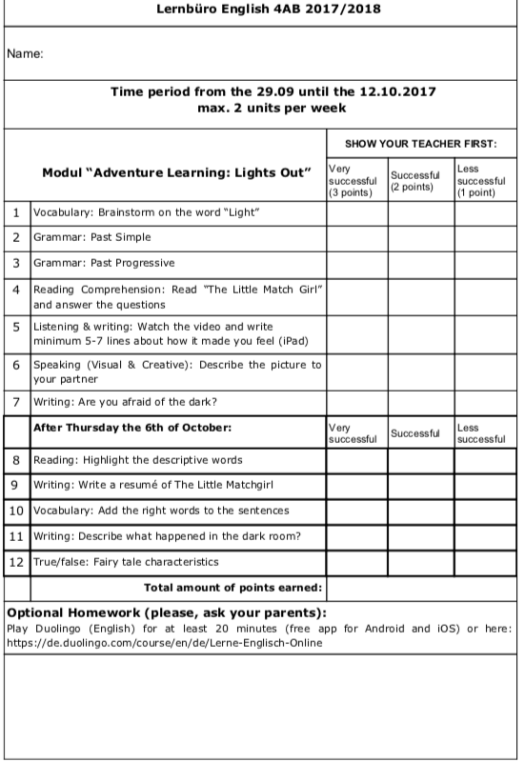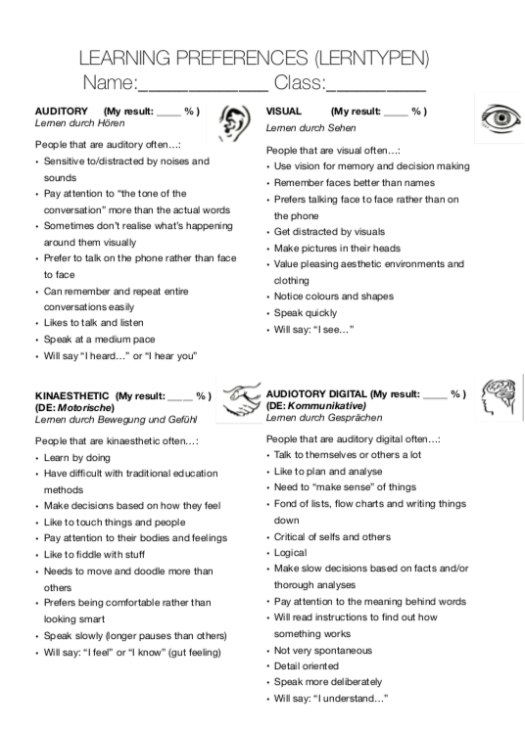This reflection is based on my own interest in gamification, game-based learning, and my continuous wonder on how we can create teaching that enables an innovative mindset.
First of all, I’d like to introduce the Institute of Play, a New York City-based institution, that creates all teaching plans through cross-curricular games.
The Institute of Play has a middle school in the center of N.Y. City called Quest to Learn:
Seeing so well thought through initiatives (in lack of a better word) like Quest to Learn, always makes me think of how to create my own games as a teacher in order to foster that innovative entrepreneurial mindset within the students. I came to think of one game in particular, which I developed with Thomas during the European Teacher in Austria. The following presents the plan to scaffold, the game idea and finally my own reflections on how it went.
Description of the game (teaching sequence) as presented to the teachers, except anything added in yellow.
Adventure Learning: Lights Out
Lights Out is an adventure learning game over 2 weeks – The students will work with assignments during their Lernbüro (Læreriet; a type of teaching style/environment, where students work individually on tasks, that we had to adapt to), which will scaffold and support the student for the actual game on Thursday the 6th of October in the Dark Room. The students will earn points for completing their assignments and tasks during Lernbüro, which they can later spend in the Dark Room (the class will gain the joint amount of points, that all the students in that class earned) to complete the tasks and win the competition. The assignments function as scaffolding in their own right as they provide the necessary vocabulary, grammar and story knowledge the students will need in order to solve the tasks in the “Dark Room”. As the students have their assignments corrected together with a teacher, they themselves have to argue how well they think they did and will be given points thereafter (normally, they are doing hardcore grammar tasks in Lernbüro, and the teachers will give them feedback according to the more traditional teaching approach; many mistakes equals a not acceptable effort – we’d allow the students to rate themselves much higher, as long as they were able to explain their thought-process).
The plan for Lernbüro:

The Dark Room is a game based in a completely dark room filled with unlit candles, in which the students will have to cooperate in order to solve word puzzles. There are 15 separate word puzzles that, when completed, will form a story (this is a story that they know since they have worked with it in Lernbüro).
Set-up of The Dark Room:
- There is only one candlelight in the room, thus it is very dark and the students have to cooperate with their teams to solve the word puzzles.
- Class (team) A and B will compete against each other to construct sentences first
- Each team has two tables in The Dark Room; one is the management table and one is the workers’ table – The management will have the rules, clues, etc. Available and they will also be in charge of how to use the currency. The workers will have to open envelopes and construct sentences from a lot of cut-out words from the story The Little Matchgirl
- Each team will assign one runner from the beginning who is not allowed to sit on a chair, but can communicate between the tables and with the lightmasters
- Currency can be used to used to light more candles by their team’s table or receive help from the lightmasters (Thomas or Sophie)
RULES (given to all students prior to the beginning of the game)
- Complete 15 sentences to create the final story.
- Each envelope contains a number of words — they make out one sentence.
- The sentences must be grammatically correct by placing the words in the right order.
- You must complete one sentence to open the next envelope.
- The sentences must be in the right order to form the story.
- You are NOT allowed to get up from your chair. Only the runners can walk around.
- You are NOT allowed to touch, move or blow out the candles.
If you don’t obey the rules, the Lightmasters will punish you any way they see fit! Remember they control the light!
Management Paper to be found at the management’s table:
Congratulations – You are the management!
Your job is to help the other table by spending the points you earned during Lernbüro responsibly. If you want to spend points on something, please have a runner address your Lightmaster.
The workers sit at the other table, they have all the envelopes. Their job is to put the words in the right order to form sentences. To receive a finished sentence from them, send your runner to collect it.
Your job is also to put the sentences in the right order in the story.
Tips for the management
- Be quiet and speak in turn, then it’s much easier to hear each other (and also so the other team can’t overhear you).
- Appointing roles for different people on your team makes it easier for you to cooperate.
- Having more light gives you more information, having more information is good for you.
- You can swap students from one table to the other, remember it has a price!
- Different people are good at different things — help each other out with what you are good at!
- You are allowed to have 2 runners — appoint one more from the other table (it’s free!)
- Remember to tell the other table what you can do. Then they can ask for help and you can help them better!
- Use your runner to exchange information between the tables.
Clues
- Is it difficult to see colours in the dark right?
- How many points do you have?
- Do you know the story?
Post the game, on a different day, we would take one class each, and talk to them about how things worked out when having to depend on your whole class in order to succeed in the game. After the initial plenary discussion, they were introduced to learning styles and we gave them each a German version of the test so that the students could get a better understanding how and when they learn best. We gathered the classes’ results in order to create specific group-combinations later on.

Finally, we played the game once more a few weeks later and the teams worked much better this time.
